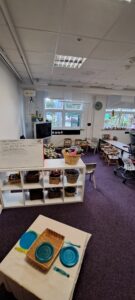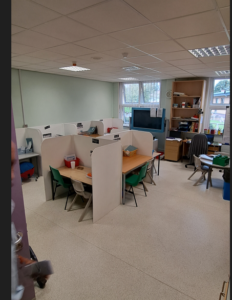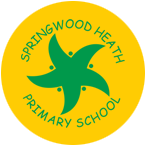“Inclusion is not bringing people into what already exists, it is making a new space, a better space for everyone.”
Curriculum Policy December 2023
Our inclusive and ambitious curriculum caters to the diverse needs of all of our children and is designed to provide a comprehensive and equitable education for all. Our curriculum recognises that every child is unique and may have varying learning styles, abilities, and interests. 
- Diverse Learning Pathways: Our curriculum offers multiple learning pathways tailored to individual needs. These pathways include formal routes, semi-formal routes and pre-formal routes. Each of which begins with an outstanding early years curriculum which provides a foundation for all.
- Personalised Learning Plans: Those who require a personalised learning plan are offered a plan that takes into account their strengths, development stage, interests, and goals. These plans are developed collaboratively between teachers, children, and parents, ensuring that the curriculum meets the specific needs of each child.
- Adaptive Teaching: Teachers are trained in adaptive instruction techniques, allowing them to adapt their teaching methods to accommodate various learning styles and abilities within a single classroom. This includes scafolded learning, precision teaching, dual-coding and questioning..
- Inclusive Practices: We ensure that the curriculum is designed to be inclusive of all children, including those with disabilities or special needs. This may involve accessible materials, assistive technologies, and support from special education professionals.
- Real-World Relevance: We incorporate real-world applications of knowledge and skills into the curriculum to make learning more meaningful and engaging for students. This helps them see the practical value of what they are learning.

- Cultural and Global Perspective: We integrate diverse perspectives, cultures, and global awareness into the curriculum which encourages children to explore and appreciate different worldviews, promoting empathy and understanding.
- Assessment for Learning: We use formative and summative assessment methods to continuously monitor all children’s progress and adjust instruction accordingly. We focus on growth and development rather than simply measuring achievement.
- Parent and Guardian Engagement: We involve parents and guardians in their child’s education by providing resources, workshops, and open communication channels. We encourage their active participation in their child’s learning journey.
An inclusive and ambitious curriculum with different pathways for all children’s needs recognises that education is not a one-size-fits-all approach. It strives to empower each child to reach their full potential by providing the necessary resources, support, and opportunities for growth and development.
Newsletters
28th February 2025
Friday 14th February
Friday 7th February
17th January 2025
What's On
- No events coming up!
